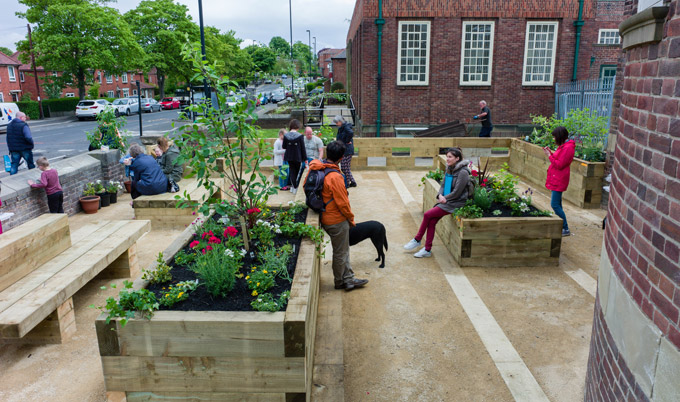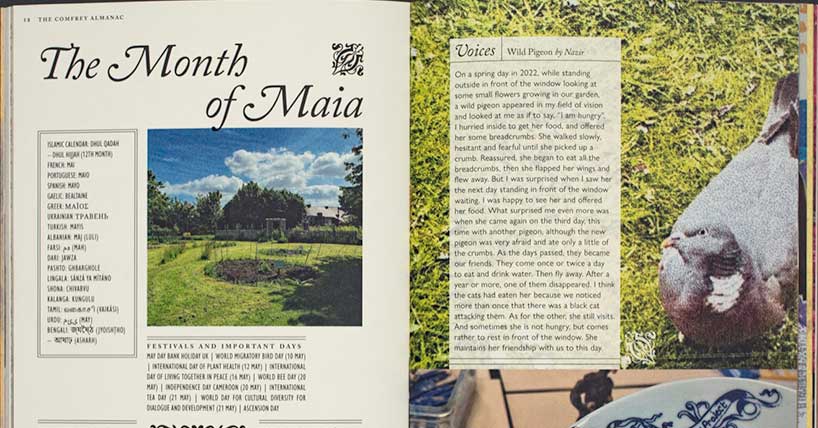Pocket Park
Participation research kick-starts mini-park
Published on: 6 November 2017
Researchers have used workshops and street trials to increase residents' engagement in redesigning their neighbourhood, leading to the launch of a mini-sized 'pocket park'.
Studies on community engagement and socially engaged design was used to involve Newcastle residents in thinking beyond preconceived ideas and to transform their perception of the area.
Dr Daniel Mallo, Armelle Tardiveau and colleagues at Newcastle University arranged a series of design workshops and street trials to help people imagine how they could improve Fenham Hall Drive, a street in the Newcastle ward of Fenham.

Pocket Park
The pocket park concept sprang from a co-production project between sustainable transport charity Sustrans and Newcastle University social scientists entitled DIY Streets, which involves local people in making design and facility improvements in their neighbourhoods. Sustrans contacted the researchers at the university's ESRC Impact Acceleration Account launch in September 2014.
During one of the workshops, the research team provided a scale model of the street that gave residents a chance to picture what might be possible.
People sketched on large photographs of the street and expressed their ideas for changes, and in a short trial, full-sized temporary wooden seats were placed along the street instead of parked cars. This allowed residents to try out different changes and assess the impact, triggering community discussion about additional improvements in their surroundings.
Daniel Mallo, Lecturer in Architecture at Newcastle University, said: “By engaging residents and stakeholders in a series of innovative design workshops - including sensory mapping, modelling and street trials - Newcastle University enabled the local community to imagine how their main street could be transformed.
“This participatory approach aimed to stimulate residents and stakeholders’ imagination to go beyond their preconceived views and perceived restrictions as well as trigger visions into the future.”
Focus groups
During focus groups residents identified that a little-used pocket of public land between the buildings could be the site of a small park. In response, the researchers set up a public/play space on the land for four days, giving passers-by and residents the opportunity to experience the impact of a public space in the area.
As a result of the research project and increased community engagement, residents and local stakeholders worked together to apply for a government grant to establish a pocket park. They were granted £15,000, and the pocket park was built and opened.



